Natural hair care has taken the spotlight in recent years, with Batana oil and Rosemary oil emerging as two powerhouse ingredients. For those aiming to improve scalp health, reduce hair thinning, or simply nourish their strands, these oils offer a plant-based alternative to synthetic products. Let’s unpack how these oils support hair health and what you should know if you’re considering adding them to your routine.
What is Batana Oil and Why is it Making Waves?
Batana oil is derived from the nuts of the American palm tree, native to Honduras. The indigenous Miskito people have long used it for hair and skin care. What makes Batana oil unique is its rich composition of essential fatty acids, antioxidants, and vitamin E. These nutrients deeply nourish the scalp and help restore damaged strands.
Its thick consistency makes it ideal for individuals with coarse, curly, or dry hair types. Batana oil can help coat the strands, reduce breakage, and give a more hydrated appearance. It’s also been noted for improving the look of patchy or thinning hairlines with consistent use. For deeper insights into its regenerative properties, you can read more in this article on whether batana oil can help regrow hair.
Rosemary Oil’s Role in Natural Hair Care
Rosemary oil, extracted from the aromatic herb Rosmarinus officinalis, has long been recognized in traditional medicine. More recently, its role in hair care has drawn attention due to its potential to support circulation and stimulate hair follicles.
When applied to the scalp, rosemary oil may help increase blood flow, supporting follicle function. Some early studies and anecdotal results suggest it may help slow down hair thinning or support regrowth when used over several months.
Benefits of Batana Oil for Hair
Deep Moisture and Shine
Batana oil is known for its deeply moisturizing effects. Its rich texture helps seal in moisture, smooth frizz, and leave hair feeling softer.

Regular application may also lead to a noticeable shine that comes from healthier strands.
Scalp Nourishment
The oil’s antioxidants and fatty acids can nourish the scalp, creating an ideal environment for hair to grow. People with dry or itchy scalps often report relief after several applications.
Barrier Against Daily Stressors
Environmental pollutants and UV rays can break down hair proteins. The oil forms a light protective layer that shields hair from external aggressors without weighing it down.
Reduced Breakage and Thicker Appearance
While results vary, some users experience reduced breakage and fuller-looking hair over time. This may be attributed to the oil’s ability to strengthen and hydrate each strand. Real stories like this one on restoring your thinning hairline show what consistent use can do.
Rosemary Oil’s Effects on Scalp and Hair Health
Supports Follicle Function
Circulation is key to follicle vitality. Rosemary oil may assist by stimulating blood flow to the scalp. Better circulation means better nutrient delivery and healthier follicles.
Fights Free Radicals
Its high antioxidant content helps combat the oxidative stress that weakens hair follicles and contributes to thinning hair.
Helps Cleanse the Scalp
Rosemary oil’s antimicrobial properties may help reduce buildup and support a cleaner scalp, potentially reducing dandruff or irritation.
How to Apply Batana and Rosemary Oil for Maximum Results
Using these oils properly is essential. Here’s a simple approach:
- Warm a small amount of Batana oil in your palms until it softens.
- Massage into the scalp and distribute through the hair shafts.
- Add a few drops of rosemary oil to enhance the benefits.
- Leave on for at least 30 minutes or overnight before washing out.
- Repeat 2-3 times per week for best results.
Avoid excessive use, especially of essential oils like rosemary, which are potent. Always conduct a patch test before applying it to the entire scalp.
What Results Can You Expect?
While individual experiences differ, many users report:
- Softer, more manageable hair after 2-3 uses
- Reduced scalp flaking and dryness within a week
- Fuller appearance and reduced breakage after 4-6 weeks of consistent use
- Noticeable baby hairs or regrowth along thinning edges over 8-12 weeks

Hair growth cycles are slow, so patience is key. Long-term use may yield the most noticeable improvements.
Who Should Use These Oils?
These natural oils are particularly helpful for:
- Those with coarse, dry, or curly hair textures
- People experiencing hair thinning or early hairline recession
- Individuals with itchy, flaky, or dry scalps
- Anyone looking to transition away from chemical-laden hair products
However, those with very fine or oily hair may want to apply more sparingly to avoid buildup.
One Noteworthy Brand: Keyoma
If you’re looking to try Batana oil for yourself, Keyoma’s pure Batana oil offers a cold-pressed version that keeps its nutrients intact. It may be worth considering if you’re moving toward a more nature-rooted hair care approach.
Final Thoughts on Batana and Rosemary Oil for Hair
Natural hair care requires time and consistency. Batana oil brings intense hydration and repair, while rosemary oil supports follicle health and scalp function. When used together, they offer a dual-action approach: strengthening hair from the root while softening and protecting the strands.
Used regularly, these oils can become valuable additions to your hair care routine, offering long-term support for healthier, stronger, and more resilient hair.



